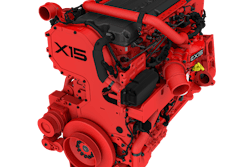Did you know you are a certified vehicle test engineer?
Everyday, you get in your vehicle, drive your miles, and in the process, you are testing the vehicle for the manufacturer. Wouldn’t it be great if you got paid for that?
In March 2024, the National Highway Traffic Safety Administration (NHTSA) released its 2023 Annual Report on Safety Recalls. I have previously reflected that as a child, I do not recall my parent’s vehicles ever having recalls. Those Country Squire and Vista Cruiser station wagons seemed pretty robust. Or was it that we just didn’t care as much in the 1960s about build quality, safety, and everything else associated with customer satisfaction?
The recent NHTSA report documents what you probably felt all along, that the number of vehicle recalls has been steadily increasing over time. NHTSA publishes this graph in the report showing that, yes, recalls have been going up over time. You were not imagining it. People in the trucking industry are probably painfully aware that these recalls are not just happening with passenger cars.
The 12 highest number of recalls out of the 28,397 total from 1966 through 2024, NHTSA recalls by manufacture data includes three truck makers — Daimler Trucks North America, LLC (note to NHTSA, it is “Truck”, singular), Mack Trucks, Inc. and Paccar Incorporated. One can play with date ranges over the decades and get Navistar and Volvo Trucks North America to hit the top 12 list. No truck makers are immune to recalls. Even fledgling truck makers like Tesla and Nikola have had recalls.
NHTSA categorizes recalls as “Uninfluenced” and “Influenced,” which are, in my opinion, nice ways of describing that the manufacturer self-reported an issue versus NHTSA telling them they have one. Both categories result in customers having to get their vehicle repaired. Sometimes this is through somewhat convenient over-the-air-updates. At other times it requires your vehicle spend time in a shop.
To the best of my knowledge, customers are not compensated for their downtime. Often, I expect, downtime and customer lost opportunity costs are not even tracked by OEMs.
From my simplistic point of view, it seems like customers have been providing value-added support for testing OEM vehicles. Why aren’t they entitled to some form of compensation?
When your truck is in the shop for three days, you likely are not making money from it. There is a definite cost to you as a customer of the OEM having to correct a problem that they did not catch in developing and building the vehicle.
This seems to be a bit of free ride for OEMs, which is being paid for by their customers. It’s very likely that the customers exposed the problem through driving the vehicles. So not only are they paying out of pocket for downtime, they have been performing real-world testing services for the OEMs.
One of the foundations of improvement is to start by measuring the problem. What if OEMs were required to measure customer downtime? What if OEMs were required to compensate owners for miles driven while testing their products between recalls?
Call me crazy, but what if the OEMs actually looked at owning a truck from their customers’ perspective?
Recalls are not about typical wear-and-tear maintenance. They are about failures to design and build the product as intended. Finding potential recall issues is why OEMs spend years doing analysis, track testing and field testing of their products before officially going into production. That term, “in production” means different things to different people. For some background on that, see NACFE’s report conveniently titled Defining Production.
To be brutally honest, recalls are failures by OEMs to find and eliminate issues before the product is delivered to the customer. Sometimes these can be because a supplier took shortcuts in choosing materials or parts and didn’t tell the OEM. Sometimes it’s just because the real-world is significantly more complex than can be efficiently modeled in testing, so the customer get the honor of finding the issue.
Wouldn’t it be great if customers got compensated by OEMs for downtime and testing? Maybe that would inspire the OEMs to have fewer recalls in the future. It seems that recalls are increasingly part of the customer-OEM experiences.
Perhaps OEMs need to do more than just returning a repaired truck to its owner. Perhaps customers need to be more demanding of their OEMs.
OEM marketing groups and dealerships might even see a positive opportunity to claim their products have fewer recalls, or that in standing behind their great products, they compensate their customers for recall downtime and customer vehicle testing.
The reality is that we are all knowingly or unknowingly test drivers for OEM products. In a free-market economy, recalls should be product and company differentiators. Food for thought.












